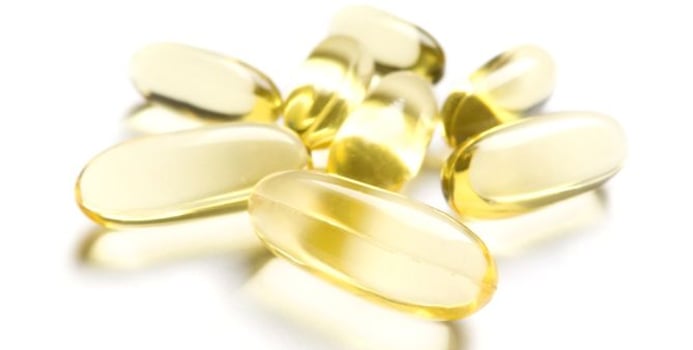Polyunsaturated fats, or "good" fats as they are commonly known as, are simply those fats that have greater than one double-bonded carbon in their molecules. Typically liquid at room temperature, these fats have been shown to have a positive effect on health when consumed in moderation and in place of the less healthy saturated fats and trans fats.
How Polyunsaturated Fats Benefit Your Health
Polyunsaturated fats have been shown to help reduce cholesterol levels in your blood, as well as lower the risk of heart disease by slowing blood clotting. Because they include the essential fatty acids omega-3 and omega-6, they also play a critical role in both brain function and the growth and development of your body. Polyunsaturated fats have also been shown to help reduce the symptoms related to arthritis, many general joint problems and several skin diseases.
How Much Polyunsaturated Fat You Should Eat
25% to 35% of your total calories eaten in a day should be derived from fat. For the best health, the majority of these fats should come from polyunsaturated and monounsaturated fats. Depending on your total caloric intake on a daily basis, your polyunsaturated fat consumption will vary.
Where Polyunsaturated Fats Are Found
Polyunsaturated fats are primarily in fish and plant products. The main sources of these fats include:
Oily Fish
- Sardines
- Mackerel
- Trout
- Salmon
- Herring
- Fish oil
Plants & Plant Oils
- Safflower oil
- Grapeseed oil
- Sunflower oil
- Soybeans
- Corn oil
- Soy oil
- Cottonseed oil
- Flax seed oil
Excess Polyunsaturated Fat Intake
Though polyunsaturated fats are generally thought to be healthy, there are a couple of exceptions to that statement. There is some evidence that polyunsaturated fat, when consumed in excess, can contribute to a risk of cancer. The thinking behind this is that because polyunsaturated fats turn rancid quicker than other fats, there is a greater danger. For this reason, polyunsaturated oils should always be stored in a cool, dark place prior to opening and in the refrigerator after they are opened.
Another problem with polyunsaturated fats is that though the omega-6 fat that people eat has increased, omega-3 consumption has decreased creating an imbalance. Many experts believe that this imbalance has contributed to the growing amount of inflammation and chronic diseases cases such arthritis, heart disease and diabetes. Care should be taken to consume the appropriate amount of the more vital omega-3. The highest concentrations of this essential fatty acid is found in the oily fishes, and therefore you should consume at least two servings of these weekly for the optimum health.
As with any food, eating it in moderation is the key. Polyunsaturated fats are a great choice if you want to bolster your healthy fat intake, but you should always be mindful of how much you are eating to ensure you stay within the recommended levels. If you have any questions about whether your consumption of polyunsaturated fats is healthy, contact your doctor or a nutritionist for more information. They can work with you to formulate a diet that will include the best balance of healthy oils with lean proteins, vegetables, fruits and whole grains so that you will have a heart-healthy and well-rounded diet.



